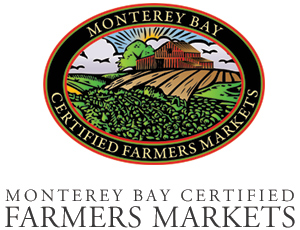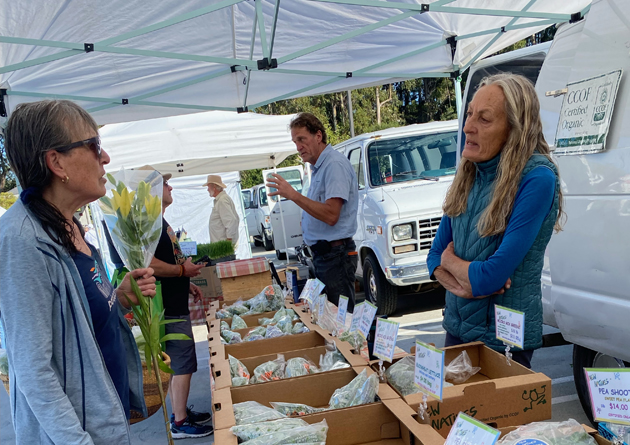If anyone would ask you what Steve Jobs and Sandra Ward of New Natives have in common, the odds are pretty decent you’d be hard pressed to guess the answer, which is: they both started their businesses in their garages.
“I began growing wheatgrass in my garage around 1980 or so,” Sandra recalled with a laugh. She and her partner Ken Kimes were a couple of city kids from Los Angeles in the 70s, and ended up on the Santa Cruz area. “We weren’t hippies or anything when we left LA, but after we got here our hair got longer” said Kenny. “I got a job delivering juice for this funky company called Juice Club.” Sandra saw an opportunity for adding wheatgrass to Juice Club’s lineup. “I just planted a couple of 4 x 8 sheets of plywood with trays to see how it went. No lights, nothing fancy. I just opened the garage door and let the sunshine come in. Later we began growing outside. When we found our current home, a small greenhouse in Corralitos, our production really expanded” explained Sandra with a chuckle. “We were harvesting up to 80 lbs. a week of sprouts before we moved into the greenhouse, stuffing everything into pillow cases.” Their new greenhouse landlord in Corralitos grew mushrooms, so their product line now consisted of wheatgrass, sprouts and mushrooms. By this time a startup named Odwalla began to distribute juices, and for a time Ken sold wheatgrass juice to them.
New Natives itself is the progeny of a company started by a couple named Rainbow and Wind Spring (no last names, just Rainbow and Wind Spring). Ken and Sandra approached them about buying their operation, which at the time consisted of growing and selling sprouts. “As soon as they thought their business was worth something, they jacked the price up, so we said ‘no thanks’,” said Ken. “A couple of months later they just left everything behind and moved to Hawaii. We just took over.”
Both Sandra and Ken believed strongly in growing food without synthetic inputs. Their farm was the eleventh farm in California to be certified organic by CCOF, the only organic certifier at that time. “We were there at the very beginning of the certified organic food movement.”
Demand for microgreens was increasing. With their new greenhouse, New Natives had found a valuable new revenue source. Ken described the value. “Sprouts consist of the entire plant” the seeds, stems, and leaves. So we’d always need to buy seeds to produce alfalfa sprouts. A dairy growing alfalfa for their cows usually produced the seeds, and sometimes we had trouble with systemic diseases such as e coli. It was a nightmare. Microgreens, on the other hand, are cut, so they grow back. We were able to bypass all the problems that come with growing from seed.”
The Monterey Bay Certified Farmers Market became New Natives’ first market, proving to be the launch pad for their business that now spans five decades. Ken recalls those early days. “Sandra and I converted our 1970 Volkswagen van into our delivery vehicle and what we used to go the market. We’d been using it for camping up until then.” As demand grew for organically grown food, New Natives have needed to continually expand their production capacity. Their original base of operations in Corralitos is still home, but has needed to expand production and packaging into other facilities in the Corralitos/Watsonville area. Although they have expanded into selling to grocery stores, their focus has always been farmers’ markets. “Farmers’ markets have always been the heart of our business.”



